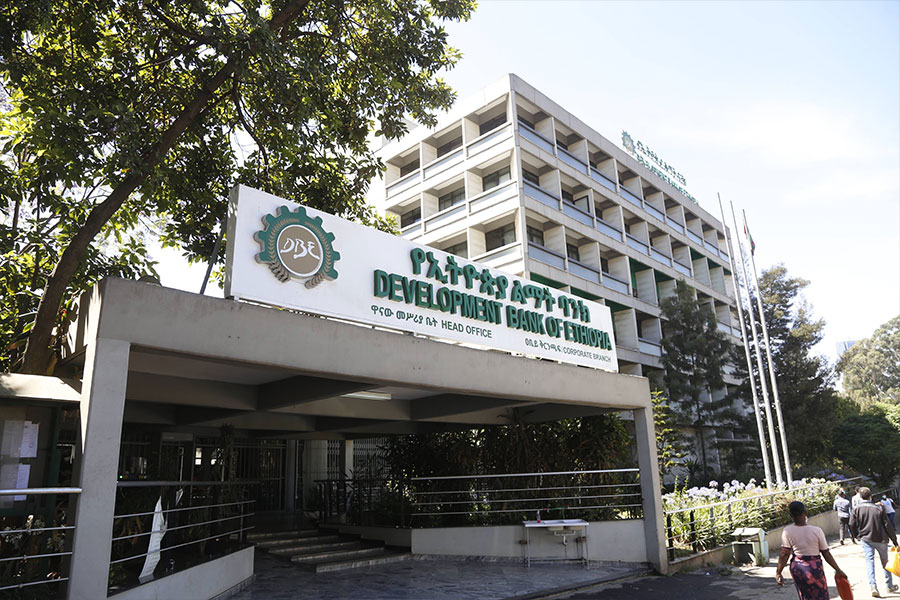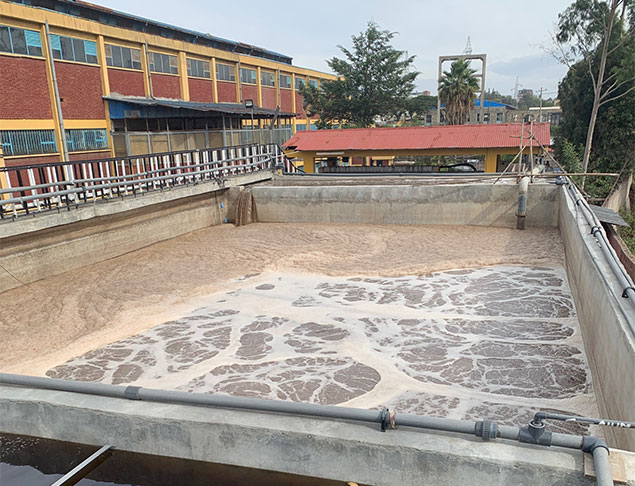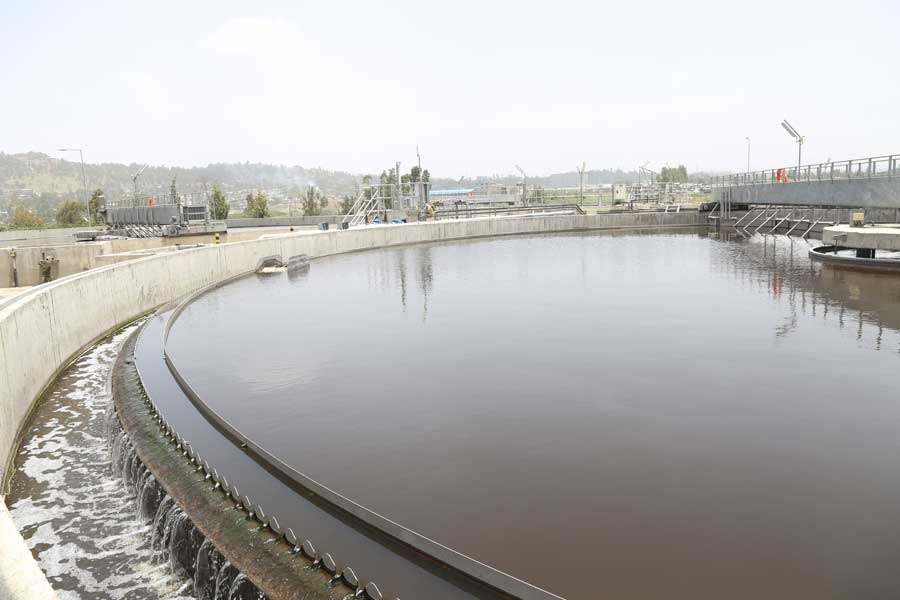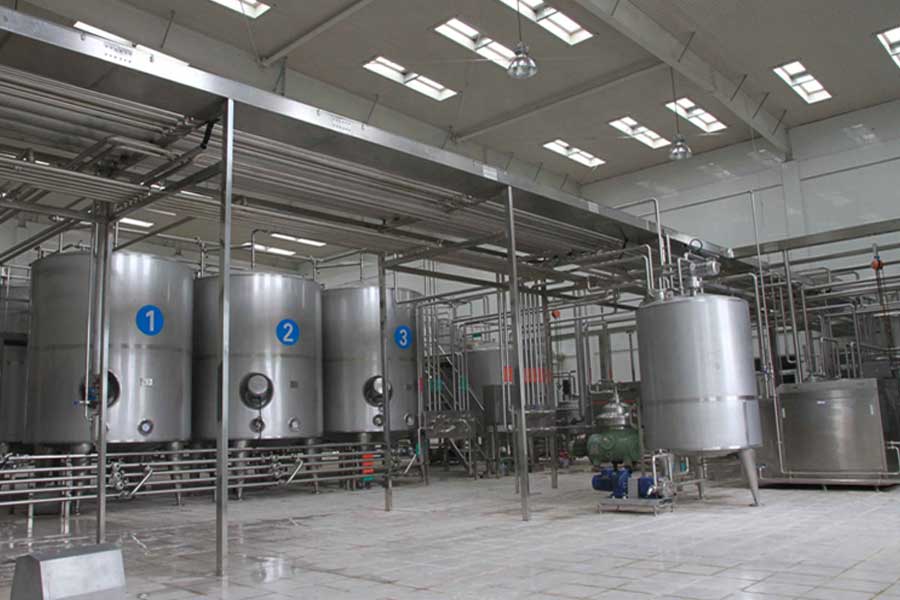
AquaAddis, one of the pioneer bottled water brands, has abruptly suspended operations at its Burayu plant following a contentious dispute with regional tax authorities over millions of Birr in alleged unpaid land lease fees. The closure has left hundreds of employees in uncertain fate.
The plant, owned by Asku Plc, has been a prominent player in the water bottling industry for over two decades. Located in Burayu, a town on the outskirts of Addis Abeba, the facility spans approximately 62,000Sqm and boasts a daily production capacity of 85,000 bottle packs. Trouble began when Burayu authorities implemented a new land policy requiring all plots, existing and newly held, to be leased. The policy shift has caused confusion and concern among property owners, many of whom were unprepared for the sudden financial demands.
Three months ago, Asku Plc received a letter from the Burayu land administration office demanding an immediate down payment of 30 million Br, representing 10pc of a total 300 million Br lease fee. The balance is payable over 40 years for an 80-year leasehold period. The company contested the request, deeming it groundless, and appealed to district and city officials. Despite months of appeals, district revenue authorities forcibly shut down the plant.
Company executives have expressed frustration with the flawed sequence of events, receiving unsatisfactory responses to their numerous letters requesting respite.
"They closed the company like it was nothing," said Yonathan Girma, the plant manager, unable to conceal his disappointment. "It's been almost two weeks since we were shut down."
Yonathan questioned the legitimacy of the process, wondering if such a change to land administration systems could be implemented through simple letters or circulars. He disclosed the substantial financial burden imposed by compliance and asked whether closing the business was a viable option.
Sheger, a new city formed from consolidated satellite cities encompassing Addis Abeba, is divided into 12 districts, including Burayu, and 36 woredas. It is a hub for thousands of factories. According to Kifle Tekle, head of Burayu's land administration office, the new policy conforms with the broader Sheger City Administration's decision to transition all land ownership to a leasehold system. He stated that the town needs to increase revenue for infrastructure development, including water, electricity, roads, and other essential services.
"Leasing land is one way to generate revenue," he said.
A letter signed by Abdisa Galii, deputy head of the Sheger Revenues Bureau, confirms that the Sheger City Municipal Council approved, in December 2023, the pricing structure for manufacturing lands at 61.98 Br for a square meter for an 80-year lease term. According to Abdisa, the decision was made after Asku Plc failed to comply with the new rules and regulations.
"They're required to abide by the law," he told Fortune, adding that companies can file complaints and appeals according to the law. "It'll all be treated fairly."
Ethiopian Beverages Manufacturing Industries Association leaders intervened, hoping to resolve the issue. However, their appeals have remained unheeded, leading to the company's unprecedented shutdown.
"It's shocking to see it has closed down," said Ashenafi Merid, the Association's general manager.
He suggested that such disputes should be resolved through mutually acceptable settlements, such as agreed instalment payments.
The plight of AquaAddis raises broader concerns among investments operating in the region. Several companies have faced similar demands for unprecedented land charges. Amenti Plc, a sister company, received a similar letter from the Burayu land office demanding it pay 310 million Br, with 10pc due upfront.
A recent United Nations study revealed a decline in the manufacturing sector’s contribution to the GDP, falling by 1.5 percentage points to 4.6pc in 2022. The report cited loose monetary policy, supply chain bottlenecks, and security challenges as critical issues affecting the sector. The beverage industry has consistently opposed the excise tax since its imposition, arguing that it operates in an already unfavourable environment.
AquaAddis has experienced operational hiccups over the last several years due to industry-wide concerns, such as raw material shortages caused by foreign currency scarcities. Like its peers, it was operating at 50pc capacity before the closure. The recent foreign currency reforms had offered hope in reviving its capacity by accessing vital forex. However, the unexpected demand from authorities has presented a refreshed dilemma to its managers and owners.
Asku Plc and Amenti Plc are part of the ABIG Group, run by Michael Birhane and his siblings. The conglomerate's diverse portfolio includes investments in retail, healthcare, and manufacturing, with 12 subsidiaries like Astu Injera, Girum Hospital, and Daily Mini Mart. Asku Plc bottles AquaAddis water and other beverages such as Royal Crown tonic water, RC Lemon, and Orange. With several of its companies operating within Sheger, the conglomerate is facing financial pressure due to unanticipated payments.
At the AquaAddis bottling plant, the job security of 380 workers hangs in the balance. With the threat of termination looming, Berecha Lemma, leader of the labour union at the bottling company, expressed deep concern about the growing anxiety among the workforce. He depicted the situation as "unfortunate," noting that many employees are the primary breadwinners for their families.
One such employee is 42-year-old Reta Tolera, who has worked for the company for over 12 years on the production line. As the primary provider for a family of six, earning approximately 4,000 Br a month, losing his job has created anxiety.
"I'm hoping things will return to normal soon," he said, expressing a glimmer of hope for reinstatement.
A World Bank study found that sub-Saharan African countries have weak land property rights systems, leading to heightened disputes and high registration costs. Experts note that these requirements have broader implications, which are bound to create further precarious conditions for companies and frustrate regional investment.
"This is a politically driven decision," said Arba Beyene, a lawyer and partner at Ethio Alliance Advocates LLP.
He argued that the changes were unlawful, claiming that subjective judgments and arbitrary regulations cannot be used to alter established contracts. According to him, while regional administrations have the authority to implement federal laws through their administrative workings, these laws should be well-defined, predictable, and avoid conflicts with other laws.
"Local legislators should have been more cautious in writing the laws," he said.
Arba contended that the lack of transparency and unpredictability would inevitably stifle businesses and investment.
PUBLISHED ON
Sep 28,2024 [ VOL
25 , NO
1274]


Fortune News | Jun 20,2020

Fortune News | May 11,2019

Radar | Nov 14,2020

Fortune News | Apr 26,2019

Commentaries | Feb 11,2023

Fortune News | Dec 14,2019

Fortune News | Apr 30,2021

Fortune News | Dec 28,2019

Fortune News | May 02,2020

Dec 22 , 2024 . By TIZITA SHEWAFERAW
Charged with transforming colossal state-owned enterprises into modern and competitiv...

Aug 18 , 2024 . By AKSAH ITALO
Although predictable Yonas Zerihun's job in the ride-hailing service is not immune to...

Jul 28 , 2024 . By TIZITA SHEWAFERAW
Unhabitual, perhaps too many, Samuel Gebreyohannes, 38, used to occasionally enjoy a couple of beers at breakfast. However, he recently swit...

Jul 13 , 2024 . By AKSAH ITALO
Investors who rely on tractors, trucks, and field vehicles for commuting, transporting commodities, and f...

Oct 25 , 2025
The regulatory machinery is on overdrive. In only two years, no fewer than 35 new pro...

Oct 18 , 2025
The political establishment, notably the ruling party and its top brass, has become p...

Oct 11 , 2025
Ladislas Farago, a roving Associated Press (AP) correspondent, arrived in Ethiopia in...

Oct 4 , 2025
Eyob Tekalegn (PhD) had been in the Governor's chair for only weeks when, on Septembe...